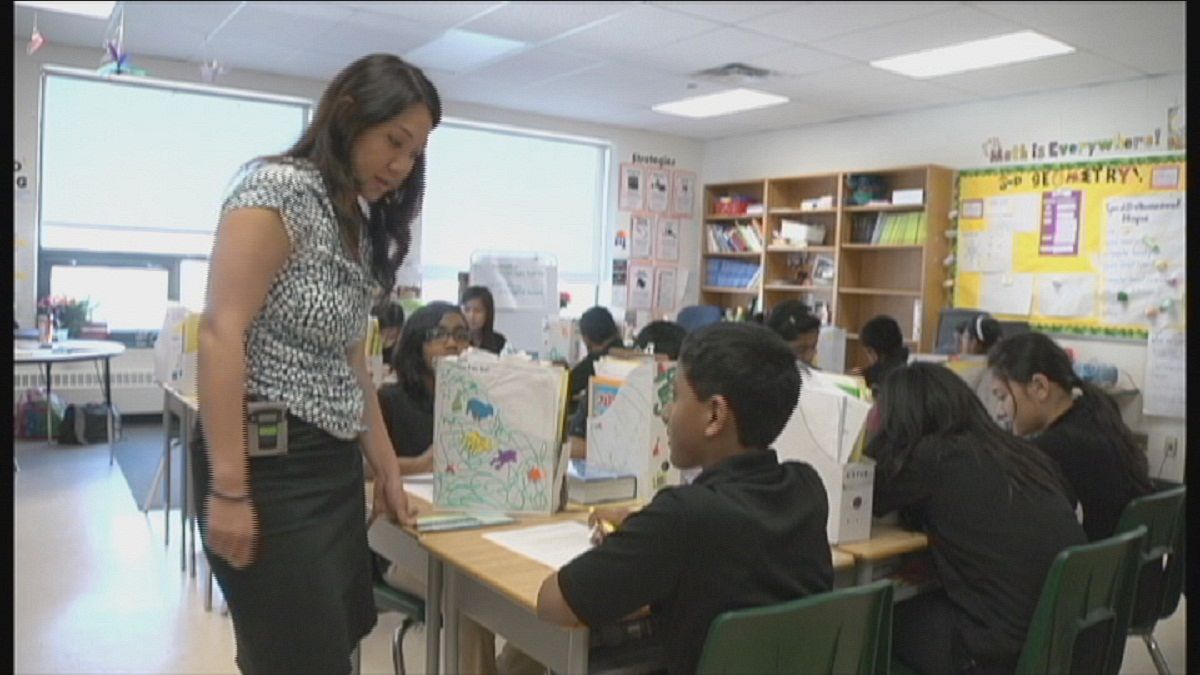Teachers and their teaching methods are central to a child’s educational experience. But in a fast-changing world, teaching methodology has to change all the time to keep up with new needs and aspirations.
Canada: working together for better results
Professor Michael Fullan is currently Ontario’s special education advisor. He has taken part in numerous education projects to improve collaboration between staff and pupils and has published many books on the subject. In his view collaboration is essential, between teachers and students and also between schools.
He said: “What we have been able to do in the last 10 years in other countries as well as Ontario is to create a new profession where teachers are in fact learning about innovation all the time from each other and from research.”
Michael Fullan is regarded as something of a saviour of the education system in Ontario but as a child he wasn’t interested in education at all: “Most of my friends, including my family, we were all interested in hockey, hockey, hockey.”
But now, at the age of 72, he is still working and still researching ways of achieving good results for even the most deprived pupils: “The best teachers have two qualities: one is that they care about each student, so the caring passion of concern, and the second is the ability to teach well, which is how I reach students with their different learning needs and help them learn. What we see now in our own work-led teachers, is that we want to maximise the integration of caring and being effective.”
The Armadale Public School in Toronto was one of 180 schools that were transformed according to Michael Fullan’s theories.
“A teacher has to be a learner, has to keep up and they can’t do it just by staying in their classroom, they have to do it by working with other teachers, by working with leaders who are introducing new ideas. Because we know from our research that teachers who work together in a focused way get better results. So now you can’t just be a teacher in your classroom, you also have to say how do I work as a team member,” he said.
Michael Fullan recognises that being a teacher today presents huge challenges. But when teaching succeeds it is also one of the most important jobs in the world.
Canada: homework hotline
Quebec has high drop out rates in schools. As a way of encouraging students to go to school, an association offers help with homework over the telephone. The project, Allô Prof, has been running for 15 years, supported by the Education Ministry. In that time, they have responded to around 1.5 million requests phone calls.
All schoolchildren in Quebec can get personal advice from a teacher, if they cannot do their homework. Calls are free and anonymous, like any other helpline. Before discovering Allô Prof, Ella had stopped doing her maths homework. Today, she does not hesitate to call for help: “Allô Prof helps me a lot because they are people – whatever your problem, whatever your age or what grade you’re in – they are going to say OK, you don’t understand that, and they’ll explain it to you. If Allô Prof wasn’t there, I wouldn’t be able to do multiplication on my own.”
There is a virtual classroom, a forum, educational games, videos and a virtual library. This range of interactive tools means everyone can find the answers they need, even parents!
Every week, Allô Prof answers around 37,000 phone calls, and they say that this helps schoolchildren persevere even if they are having difficulties. Despite this however, the drop out rate remains high: 22 percent.
Hong Kong: made to measure
Professor Cheng Yin Cheong advocates a fundamental change in the way children are taught. He says that teachers should offer a global perspective and that students should be able to choose what they learn and how they do it.
He told Learning World: “In our education, in our learning process, we should incorporate globalisation, localisation, and individualisation into our students’ learning process and in our teachers’ teaching process. What does it mean? It means that we have globalised learning, it means our students are learning content, not only in the local issues, they can discuss, they can observe the local issues, global development, like the environmental, the global warming issues, and also the trends of global development.”
The professor says that too many teachers simply attempt to pass on acquired knowledge about subjects that do not interest students. He says that this way of teaching – from the top down – is obsolete: “If we use the traditional education, it means that our new generation they own the traditional kind of ability, knowledge and skills. It means that they are repeating the performance of other students. They are repeating the contribution of other people.”
Cheng Yin Cheong says that all students are different and should be taught as individuals: “How can we help our students to have such kind of creativity? It is important we help them to develop contextualised multiple intelligence. It means that they not only have economic thinking, they can not only have the technological thinking, they can have social thinking, cultural thinking, and even how to learn, they can have that kind of intelligence.”
Changing attitudes to education is not an easy task. It requires a new approach to teaching and a new definition of the role of a teacher.
Read more…
